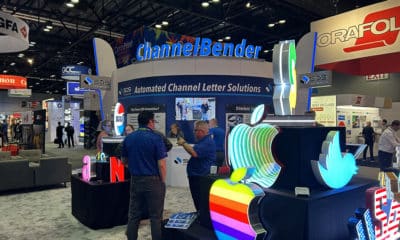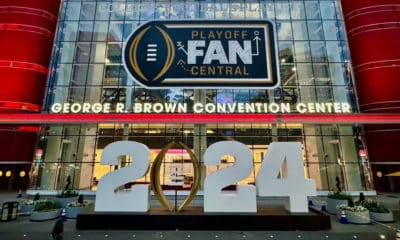Business Management
The Linux Wars
Mainstream manipulations that affect the price of your software
Published
18 years agoon
In March 2004, The SCO Group (Lindon, UT), a software company, filed a $3 billion lawsuit against IBM, claiming that IBM had inserted more than 800,000 lines of UNIX-based, SCO-owned code into its version of Linux. SCO says it owns UNIX, including the patents and copyrights. Linux is a freely distributed, open-source code, operating-system (OS) software that Linus Torvalds, then a college student, conceived in 1991. Mixing his own code with some borrowed from UNIX (an earlier OS), Linus named his new software “Linux,” and put it on the Internet, where it has since been modified and improved by a loosely held organization of programmers. The classic model of open-source software development, Linux, over the years, has become a mainstream OS for data-center servers. UNIX was developed by AT&T’s Bell Laboratories (New York City) in the 1970s. Highly modified from its original version, UNIX-based software remains in common use today. An OS software contains built-in routines and procedures that permit a computer to recognize and respond to numerous commands. Essentially, it controls the machine and allows you to enter and run appropriate, system-matching programs. Commonly used OS’s are Microsoft’s MS-DOS and Windows, IBM’s UNIX series, Red Hat’s open-source Linux, and Apple’s MAC OS. Linux-type, open-source code is freely available to interested users or programmers. Oppositely, “proprietary software” source code is a carefully guarded secret. All Linux code is open, while Microsoft’s, for example, is proprietary. A computer functioning with one OS can’t run programs designed for another. The 2003 market for Linux-equipped servers topped $4 billion. Comparably, and depending upon your informant, the global software market is worth $152 billion to $186 billion. Red Hat Inc. (Raleigh, NC) is the best-known Linux reseller. Several companies, including Red Hat, have added facets (application software, service agreements, etc.) to Linux, to produce saleable versions. Early on, Linux became an unofficial, global club. The members, both programmers and users, saw themselves as outsiders, a type of T-shirt-clad cult group. True to cult form, an unwritten covenant soon accompanied Linux software, notably, that it remain free, downloadable and available to anyone. Even today, although now gelded and penned, Linux remains a broadly discussed and constantly modified, open-source software that attracts a large band of enthusiastic, free-spirited followers. SCO’s second strike IBM was only the first strike. In December 2004, SCO sent letters to more than 1,000 Linux customers, accusing them of illegally using SCO’s property. Business Week magazine commented that SCO’s actions “angered the thousands of unpaid programmers who helped Linux become the world’s second-most-popular OS.” Last count, SCO was suing Red Hat, IBM, Google, DaimlerChrysler and others. Most have countersued. (DamlierChrysler has since proved it no longer uses the software.) SCO says all those using or profiting from Linux owe it money. I asked Blake Stowell, SCO’s PR director, if SCO sold a product that competes with Linux. He replied that SCO develops, markets and sells its UnixWare and OpenServer software and that these run, as does Linux, on standard Intel or AMD hardware. Business Week says tens of millions of Linux copies are in use; most of the world’s top companies, including Sun Microsystems, Red Hat, IBM, Hewlett-Packard and Dell, offer versions of Linux. Also, the Macintosh OS (Mac OS X) is based on UNIX. Wired.com lists such high-profile corporate Linux advocates as Intel, Computer Associates, SAP, Hewlett-Packard, Dell, Oracle, IBM, BMC and Motorola. Mixed heritage The most troublesome part of SCO’s lawsuit is that UNIX’s bloodlines are comparable to those of an alley pup. To wit: In 1993, AT&T, UNIX’s pro-genitor, sold the copyrights and a version of UNIX to Novell, who sold the version to Santa Cruz Operation Inc., who, in turn, entered into a joint venture with IBM to create still another version. In 2001, SCO bought the UNIX software business from Santa Cruz. It planned to merge and sell elements of UNIX and Linux, but didn’t. In 1998, you may remember, Congress adopted the Digital Millennium Copyright Act (DMCA) to protect the intellectual property rights embodied in digital products and software. However, a group of software developers — the Free Software Foundation (FSF) and others — don’t believe in software copyright protection. The FSF dedicates itself to promoting the right to use, study, copy, modify and redistribute computer programs. Obviously, the Linux faction, and companies that have adopted Linux for profit, favor the FSF group. SCO’s opponents say that, although there are similarities, the code evidence is inconclusive. Further, SCO’s lawyers must first prove it owns the technology, then prove the accused Linux distributors, primarily IBM, placed the code into Linux. There’s also the Linux covenant. Truth is, the code may be out of the barn. Foreign aid Obviously, wide-scale adoption of the Linux OS could impede Microsoft’s goals, especially in foreign markets. A Linux-based desktop, home-use or a personal electronics software could do even more injury. Both Linux and UNIX compete with Microsoft, but UNIX isn’t a strong competitor. Linux’s popularity, however, continues to grow. Because Linux’s demise would remove what may become a strong Microsoft competitor, one has to ask: Is Microsoft aiding SCO? The answer, in a way, is yes. Business Week reports sources who say Microsoft has spent $12 million with SCO — not to support the lawsuit, mind you, but to purchase UNIX-type licenses so Microsoft customers can run UNIX-type applications. The magazine says SCO server-software licenses cost $699 per machine. At that price, Microsoft’s $12 million buys approximately 17,000 licenses. If, say, SCO is making 10% profit, Microsoft’s purchases are adding $1.2 million to SCO’s profit picture. There’s more. On March 11, 2004, News.zdnet.com writer Stephen Shankland reported that nvestment company BayStar Capital (Larkspur, CA) had confirmed that a Microsoft referral caused it to invest $50 million in SCO. It said Microsoft hadn’t invested money in the deal, but didn’t say if the mogul company had invested in BayStar. The New York Times writer Steve Lohr, on April 22, 2004, reported that BayStar had put $20 million of its own money into SCO and convinced the Royal Bank of Canada to invest $30 million. Lohr wrote, “The fact that BayStar made its investment after a referral from Microsoft, a Linux antagonist, only added to the impression of coordinated support for SCO and its strategy.” Later, however, BayStar asked for its money back, or at least a part of it. Explaining this, Lohr quoted BayStar’s managing partner, Lawrence Goldfarb, who said SCO had become too engaged in publicity and was traveling and spending too much in contesting the Linux backers. Lohr also quoted Goldfarb as saying, “It was evident that Microsoft had an agenda.” Wired.com reports that one of BayStar’s largest investors is Vulcan Capital, the private investment vehicle of Paul Allen, Microsoft’s second-largest Microsoft shareholder. Crusaders Microsoft Corp. Chairman Bill Gates visited Paris on November 17 to sign an agreement with United Nations Education, Scientific and Cultural Organization (UNESCO) Director General Koichiro Matsuura. UNESCO and Microsoft will cooperate to boost the economies of poorer countries by heightening the computer literacy of teachers and other professionals. Before this, on July 2, 2004, the Associated Press reported that Microsoft had slashed its software prices by more than half for the Paris city government. Apparently, the city was considering switching to open-source programs. Gates and UNESCO plan to expand the application of computers, software, the Internet and information technology into poorer countries. Said Gates, “Our shared goal is to help remove barriers to digital inclusion and enable people around the world to realize the full potential of technology.” To give you an idea of economies, the CIA World Factbook says the United States’ gross domestic product (GDP) per capita is $37,800; France’s (in U.S. dollars) is $27,600, Turkey’s $6,700, China’s $5,000, Iraq’s $1,500 and Ethiopia’s $700. Red Hat, having unveiled its Linux-based, Red Hat desktop software for “less technical,” front-office corporate workers, on May 5, 2004, partnered with Hewlett-Packard, IBM, Intel and Oracle to promote open-source software’s benefits for China’s organizations. Additionally, it petitioned the European Union to asphyxiate its rules on software patents. On November 11, 2004, Red Hat announced the opening of its Beijing office. On November 18, 2004, CNN’s Singapore office reported that Steve Ballmer, Microsoft Corp.’s CEO, had warned Asian audiences that they could face patent lawsuits for using a Linux-based OS. His remarks, clearly contrasting with Gate’s European magnanimity, were, presumably, addressing Singapore’s Ministry of Defense, an organization that recently converted its array of 20,000 servers to open-source software. Stowell says the trial, scheduled for April 2005, will occur in SCO’s hometown of Salt Lake City. For more reading, visit www.groklaw.com.

SPONSORED VIDEO
Introducing the Sign Industry Podcast
The Sign Industry Podcast is a platform for every sign person out there — from the old-timers who bent neon and hand-lettered boats to those venturing into new technologies — we want to get their stories out for everyone to hear. Come join us and listen to stories, learn tricks or techniques, and get insights of what’s to come. We are the world’s second oldest profession. The folks who started the world’s oldest profession needed a sign.
You may like

NUtec Digital Ink Invests in Solar Energy for Facility

5 Reasons to Sell a Sign Company Plus 6 Options

21 Larry Albright Plasma Globes, Crackle Tubes and More
Subscribe

Bulletins
Get the most important news and business ideas from Signs of the Times magazine's news bulletin.
Most Popular
-

 Tip Sheet1 week ago
Tip Sheet1 week agoAlways Brand Yourself and Wear Fewer Hats — Two of April’s Sign Tips
-

 Photo Gallery3 days ago
Photo Gallery3 days ago30 Snapshots of the 2024 ISA Sign Expo
-

 Ask Signs of the Times5 days ago
Ask Signs of the Times5 days agoWhy Are Signs from Canva so Overloaded and Similar?
-

 Real Deal2 weeks ago
Real Deal2 weeks agoA Woman Sign Company Owner Confronts a Sexist Wholesaler
-

 Benchmarks1 week ago
Benchmarks1 week ago6 Sports Venue Signs Deserving a Standing Ovation
-

 Paula Fargo12 hours ago
Paula Fargo12 hours ago5 Reasons to Sell a Sign Company Plus 6 Options
-

 Photo Gallery12 hours ago
Photo Gallery12 hours ago21 Larry Albright Plasma Globes, Crackle Tubes and More
-

 Women in Signs2 weeks ago
Women in Signs2 weeks ago2024 Women in Signs: Megan Bradley










